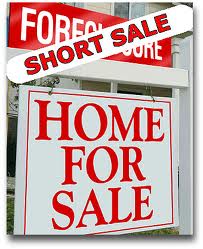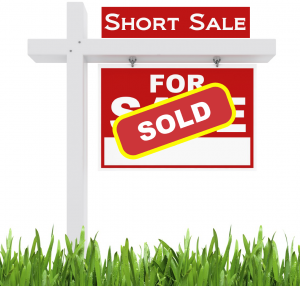
Short Sale Q & A
What is a short sale? A short sale takes place when a lender agrees to allow a borrower to sell their home at a price where the proceeds from the sale would be less than what the borrower owes their lender.
A short sale takes place when a lender agrees to allow a borrower to sell their home at a price where the proceeds from the sale would be less than what the borrower owes their lender.
Who qualifies for a short sale?
In order to qualify, a borrower typically must prove to their lender that they can no longer afford to make the mortgage payments on the home. This includes writing a hardship letter explaining in detail the borrower’s current situation. Hardships can include loss of income or job, divorce, relocation or job transfer, increased medical expenses, and more. Most of the time, simply owing more that the current market value of a property will NOT qualify a borrower for a short sale.
If I choose to short sale my home, where do I start?
Give us a call at (904)733-4911. My team and I will provide you with all of the information you need to get started after finding out a little more about your current situation. We will guide you through the entire short sale process, which includes listing your home and negotiating all offers with your lender. We are the experts and have closed hundreds in Northeast Florida.
What if I can’t afford Realtor fees or other closing costs?
Your lender will pay all of your closing costs, which includes our commission.
In what ways can a short sale benefit me?
A short sale allows you to avoid foreclosure and sell your home, for free! Additionally, we will work with your lender to get you completely forgiven of the debt that may remain after the short sale. In addition, some lender programs offer $3,000 up to $20,000 BACK to a borrower to complete a short sale transaction.
Why would my lender allow me to short sale my home?
On average, it costs a bank $58,000 to foreclose on a property. After the foreclosure the lender still has to manage the property and get it sold, usually for less than what they could get for a short sale. Too many foreclosures look bad to a bank’s investors, which could hurt them in the long run. Therefore, a short sale usually benefits all parties within the transaction, compared to the alternative. It is truly a win-win situation in most cases.
 |
Can my lender come after me later for the remaining debt?
We will work with your lender to make sure they give up their right to pursue a deficiency judgment at closing. This would completely forgive you of the debt, forever! In rare instances, a lender or mortgage insurance company can ask a borrower to pay back all or part of the deficiency, usually in the form of a promissory note over time. Occasionally, a lender may also ask a borrower to make a cash contribution. This is happening less and less frequently.
What will a short sale do to my credit?
A short sale will show up on your credit as “Settled in Full” or “Paid as Negotiated.” This looks much better to future lenders, employers, and future employers than foreclosure. A short sale itself typically lowers one’s credit score by only 30-70 points. The major damage to a credit score is usually the missed mortgage payments, which can average around 30 points each or more. If a borrower is in default and then completes a short sale, the short term effect on a credit score can be similar to a foreclosure.
Is a short sale better than a foreclosure?
A short sale is much better than a foreclosure!
- A short sale causes less harm to your credit. While a foreclosure puts a hard dent in your credit permanently, a short sale simply appears as “Paid as Negotiated” or “Settled in Full.”
- Qualifying for a loan after a foreclosure is quite difficult. In most cases, it can take up to 7 years to qualify for a new loan. After a short sale you may qualify for a new loan in one year, in fact, some borrowers have short sold their home and bought a new one in the same day.
- As I have mentioned, we will work with your lender to make sure they can’t come after you for the debt that remains after the sale. After a foreclosure, a lender can pursue judgment even years down the road in the state of Florida.
- With borrower incentives of $3,000-$20,000 in some cases, it pays to complete a short sale!
If I already have a Realtor, can he/she short sale my home?
In most cases, the answer is no. It takes a Realtor especially knowledgeable in the arena of short sales to successfully complete one. This is not a process for just any real estate agent. Ask your Realtor how many short sales they have closed and find out how familiar with the process they seem to be. Some Realtors would rather not associate with short sales because it is such a specialized process that requires hard work. I have personally closed hundreds in Northeast Florida, and am known as an expert in the industry on a national level.
How long is the short sale process?
The short sale process can last as little as a couple of months to over a year, but the average is around 6 months. It depends on many different factors. The transaction tends to be quicker when motivated sellers and buyers are very cooperative throughout the process. Also, if a high offer is received, the bank is more likely to approve the sale quicker. However, buyers who are not very motivated tend to slow down the short sale process. Inexperienced Realtors on either side of the transaction also slow down the process tremendously. Other than buyers and sellers not cooperating, the other main factors that contribute to the time process are: 1.) Multiple liens and mortgages to negotiate, 2.) Mortgage Insurance company approval, and 3.) Investor approval. If you have only one mortgage, that is being serviced by the company that actually owns the loan, we have closed them in as little as thirty days. We have had a few drag on for upwards two years.
Can I live in my home throughout the short sale process?
Yes! You are not required to move from your home until closing. Most lenders actually prefer you to stay in the property.
If you are in search of more answers, give us a call! We would be glad to further explain any
questions you may have regarding Jacksonville short sales.
(904)733-4911














